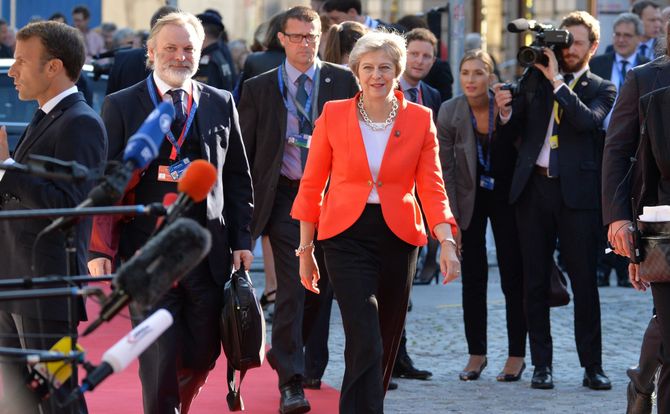Brexit: holding out hope for pragmatism, and a miracle
Last week’s Salzburg negotiations were embarrassing for those believing that EU leaders will take a practical approach to Brexit negotiations. Even though maintaining the free movement of goods, services, and capital, while losing the free movement of people is preferable to none of the above.

In a nutshell
- European leaders need to think more pragmatically about what Brexit outcome will benefit the EU
The European Union’s heads of state and government met in Salzburg last week, as Austria currently holds the rotating EU presidency. One of the main items on the agenda was a discussion with United Kingdom Prime Minister Theresa May on Brexit.
Prime Minister May negotiated based on her “Chequers” proposal, a British plan for an orderly exit from the EU, assuring free trade but not a free exchange of people. The plan has been in discussion for a while now. Mrs. May, however, has very little room to make any further compromises, due to her government’s fragile position domestically.
The EU side showed a lack of pragmatism, giving Mrs. May a “take it or leave it” offer. Unlimited freedom in exchanging goods, capital and services is always desirable in a trade relationship. For the EU, this free exchange is unacceptable if it is not linked with the free exchange of people.
By all appearances, logic was nowhere to be found at the discussions in Salzburg.
For those who think logically and pragmatically, it would appear more desirable to maintain the free exchange of goods, services and capital, even without the free exchange of people, than to have none at all. By all appearances, logic was nowhere to be found at the discussions in Salzburg. Instead of a constructive discussion, we witnessed a celebration of bureaucratic fundamentalist ideology. It was embarrassing.
But there is a lot at stake, not only for the UK, which is a crucial trading partner for most EU countries. The argument that access to the internal market can only be granted when all conditions are fulfilled was elevated to dogma, even though it neglects the negative consequences.
It also fails to take into account that the biggest promoters of the “everything or nothing” position are the same people who have recently tried to limit the EU’s economic freedoms and curb internal competition when it suited their interests. French President Emmanuel Macron, for example, uses minimum wages and social security pretexts in an attempt to limit the posting of workers, mainly from Central European businesses, throughout the union. In another example, last year his government seized French shipyards to block their acquisition by an Italian company.
Fading optimism
Until now, one could have been optimistic and believed that finally, some reasonable decision makers would have pushed for more flexibility, not only in the interest of European economies. Europe is built on diversity, and the future of the EU will depend on the ability to respect and take advantage of this diversity. Unfortunately, the approach of increasing harmonization and the insistence that “one size fits all” is killing the European spirit and sapping its strength.
As opposed to political fundamentalism, business thinking tends to be pragmatic and logical. What business often neglects to take into account, however, is the irrationality of bureaucratic politics. So far, businesses have believed that a mutually acceptable solution to Brexit would be found. Expecting businesses to invest huge sums to prepare for the bizarre alternative is asking a lot. Some will be caught unprepared.
The EU leaders in Salzburg have set October 18 as the deadline to resolve the impasse – not even four weeks. A miracle could still happen, although by definition, miracles are rare.
